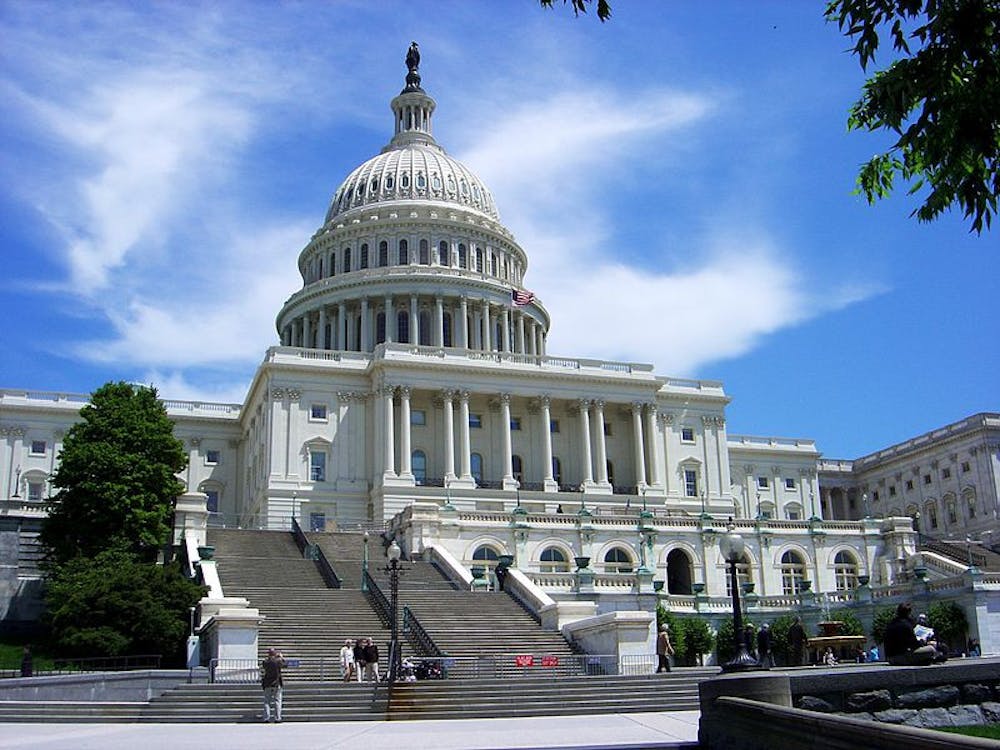Members of the American Civil Liberties Union, National Association for the Advancement of Colored People, League of Women Voters and more gathered to hear arguments in favor of making Washington D.C. the 51st state from D.C. Statehood Coalition member Elinor Hart Wednesday.
“I would like to have the same rights that you have,” Hart said to the small group over lunch at the University’s Faculty Club. Currently, D.C. residents do not have senators, lack voting members in the House of Representatives and are unable to control their budget or pass laws without possible congressional interference, according to 51 for 51, an organization that also works in favor of D.C. statehood.
With this lunch, Hart aimed to mobilize key organizations in the state, like the NAACP, in order to build a coalition that puts political pressure on Rhode Island’s Senators Jack Reed and Sheldon Whitehouse. Since proposals to create another state must pass through both houses of Congress, Hart said that every senator’s vote is essential. Only four New England senators — those from Rhode Island and Maine — have not signaled their support, she said.
“I think it’s almost un-American to turn your back on people when they are asking to be heard,” said Micholas Credle, a member of the NAACP and an attendee of Wednesday’s lunch. Credle said he has always been aware of the issue of statehood but now plans “to be an advocate.”
On Sept.19, the first hearing on D.C. Statehood in almost 30 years was held in the House of Representatives, according to Vox. Since 60 percent of D.C.’s residents are minorities, as reported by the World Population Report, and the city leans heavily Democratic, the question of statehood has become a partisan issue. Even if the bill in question — H.R. 51 — passes the House, it is expected to die in the Republican-controlled Senate.
But to Hart, the question of statehood should go beyond party lines. While D.C. has a nonvoting congressional delegate, the city’s residents are still not represented by voting members of Congress, despite outnumbering both Wyoming and Vermont in population, according to The Washington Post. Because of this, Hart believes that “D.C. has the ultimate form of voter suppression.”
The Rhode Island ACLU’s executive director Steven Brown recognized that “there is a new strong interest at the national ACLU level at pushing the proposal again ... This is an issue that’s been on the back-burner for too long.”
Jane Koster, president of the League of Women Voters of Rhode Island, also noted her organization’s long-standing support. “This is an issue that we have been more than fond of for many years,” she said. Because of Hart, Koster said her branch “will be calling (RI senators) ... to let them know that (they) support statehood in D.C.”
While support appeared favorable within the room at the Faculty Club, most Americans remain unconvinced about creating a 51-state union. Despite the fact that almost 80 percent of D.C. residents voted in favor of statehood in a 2016 referendum, over 60 percent of U.S. citizens said they oppose the idea, Vox reported.
Still, statehood remains a possibility for supporters at the luncheon. “Freedom and rights come at different times,” said Ray Rickman, a former state representative. “Everything evolves.”
Correction: A previous version of this articled misspelled the name of Jane Koster, president of the League of Women Voters of Rhode Island, as Jane Coster. The Herald regrets the error.





